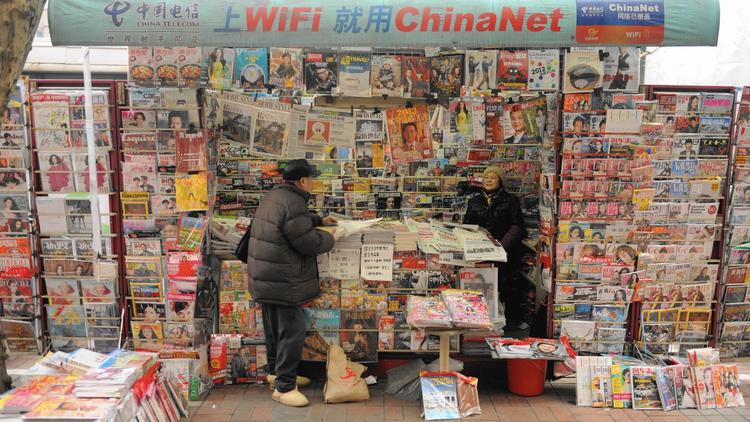The Los Angeles Times’ Julie Makinen reports apparent growth in the seizure of books and other materials leaving China:
[…] Kirchner’s moving company called to say that customs authorities inspecting her shipment found a book that included an objectionable Taiwan map. Kirchner had to sign a form saying she was “voluntarily” abandoning the book — “The Opium War,” by Julia Lovell — even though she had bought it in Beijing. (The title recently has been taken off shelves in the city because of the map issue, booksellers say.)
[…] In the last year, China has significantly stepped up border controls to prevent the import of banned materials, particularly Chinese-language books published in free-speech havens such as Hong Kong and Taiwan. But less well known are efforts by Chinese authorities to confiscate books, maps, globes, DVDs and any printed material they deem objectionable from people departing the mainland.
[…] “Regimes that are anxious about their legitimacy fetishize the signs of legitimacy,” said Tim Brook, a professor of Chinese history at the University of British Columbia and author of “Mr. Selden’s Map of China,” a book about an East Asia map from the 1600s. “So one of the signs of legitimacy is a map — there you are one color, your borders are all drawn properly and you look like a proper state.” [Source]
At his Jottings from the Granite Studio blog, Jeremiah Jenne draws a link between this “fetishization” and recent arguments over “New Qing History.”
Whether this particular fetish is an expression of acute anxiety or an involuntary response based on years of conditioning is an open question, but it is clear that Chinese leaders, media, and, increasingly, academia are becoming obsessed with anything that seems to call into question the dominant narratives of the state, party, its history and territorial integrity. It’s not hard to see this impulse behind the broadside by members of the Chinese Academy of Social Sciences against US-based academics associated with the study of “New Qing History” earlier this year. It’s the impulse that requires the state media to refer to parts of China as “China’s [Fill in Blank with Name of Border Region]”. It’s the same impulse that results in the kind of shrill behavior reported here. [Source]
Meanwhile, China has denounced U.S. moves to challenge its map of the South China Sea by sailing a destroyer within 12 nautical miles of two artificial islands. The Economist describes both sides’ positions as “a bit odd.”







